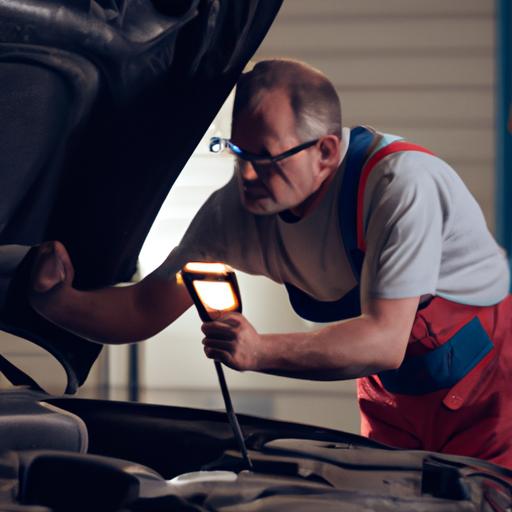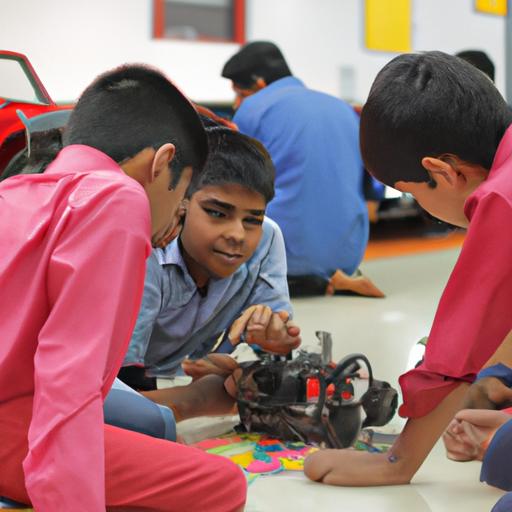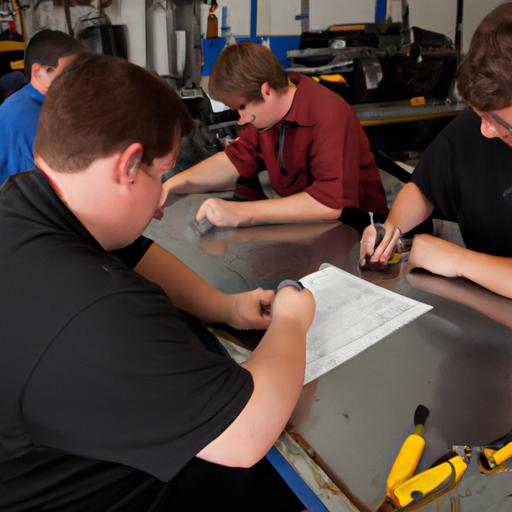What Does an Automotive Technician Do?
Introduction
In today’s fast-paced world, the automotive industry plays a crucial role in keeping us moving forward. But have you ever wondered about the masterminds behind the scenes who ensure our vehicles are running smoothly? Automotive technicians are the unsung heroes who possess the skills and knowledge to diagnose, repair, and maintain our cars, trucks, and SUVs.
Definition of an Automotive Technician
An automotive technician, also known as a mechanic, is a skilled professional responsible for inspecting, repairing, and servicing vehicles. These individuals are equipped with the expertise to troubleshoot complex automotive issues and ensure that vehicles are safe and roadworthy.
Importance of Automotive Technicians in the Automotive Industry
Imagine a world without automotive technicians. The roads would be filled with broken-down vehicles, and transportation would come to a standstill. Automotive technicians play a vital role in keeping our vehicles running efficiently, ensuring our safety on the road, and preserving the longevity of our beloved automobiles. They are the backbone of the automotive industry, providing essential services that keep us all moving forward.
Skills and Qualifications Required
Technical Knowledge of Automotive Systems
To excel as an automotive technician, a deep understanding of automotive systems is crucial. From engines and transmissions to electrical systems and computer diagnostics, technicians must possess comprehensive knowledge of how vehicles operate. This expertise allows them to accurately diagnose issues and perform precise repairs to keep vehicles running smoothly.
Problem-Solving Abilities
Automotive technicians are faced with a myriad of complex issues daily, requiring strong problem-solving skills. They must be adept at analyzing symptoms, identifying root causes, and determining the most effective solutions. The ability to think critically and troubleshoot efficiently is essential in the fast-paced environment of automotive repair.
Attention to Detail
In the automotive industry, precision is key. Automotive technicians must pay close attention to detail when diagnosing problems, repairing components, and conducting maintenance tasks. A meticulous approach ensures that all work is completed accurately and efficiently, leading to reliable and safe vehicle performance.
Certification and Training Requirements
Becoming a certified automotive technician typically requires completing a formal training program and obtaining certification from organizations such as the National Institute for Automotive Service Excellence (ASE). Continuous training and education are essential to stay current with evolving automotive technologies and industry best practices. By meeting certification and training requirements, technicians demonstrate their commitment to professionalism and excellence in their field.
Tools and Equipment Used by Automotive Technicians
Diagnostic Tools
Automotive technicians rely on a variety of diagnostic tools to pinpoint issues with vehicles accurately. These tools include OBD-II scanners, multimeters, and scan tools that help technicians interpret error codes and identify underlying problems within the vehicle’s systems.
Hand Tools
Hand tools are the backbone of an automotive technician’s arsenal. Wrenches, screwdrivers, pliers, and sockets are just a few examples of essential hand tools used daily by technicians to disassemble and reassemble vehicle components during repair and maintenance tasks.
Power Tools
In addition to hand tools, automotive technicians utilize power tools to expedite repair processes and tackle more challenging tasks efficiently. Impact wrenches, drills, and pneumatic tools enable technicians to work with precision and speed when handling complex repairs.
Specialized Equipment
Specialized equipment, such as wheel balancers, alignment machines, and engine diagnostic equipment, is crucial for automotive technicians to perform advanced diagnostic tests and repair procedures. These specialized tools help technicians maintain the integrity and functionality of modern vehicles effectively.
Career Opportunities for Automotive Technicians
Automotive Dealerships
Working in automotive dealerships provides automotive technicians with the opportunity to specialize in specific vehicle brands. From luxury cars to family-friendly SUVs, technicians at dealerships gain in-depth knowledge and expertise in servicing and repairing particular makes and models.
Independent Repair Shops
For automotive technicians seeking a diverse range of vehicles to work on, independent repair shops offer a varied environment. These shops cater to a wide array of customers and vehicle types, allowing technicians to hone their skills on different makes and models. The autonomy and flexibility provided by independent repair shops attract many technicians looking for a dynamic work setting.
Fleet Maintenance Facilities
Fleet maintenance facilities are a critical sector for automotive technicians, especially those interested in working on commercial vehicles. Whether it’s managing a fleet of delivery trucks or maintaining company cars, technicians in fleet maintenance facilities ensure that vehicles are operating efficiently to support daily business operations.
Specialty Automotive Shops
Specialty automotive shops cater to enthusiasts and owners of niche vehicles, such as classic cars, sports cars, or high-performance vehicles. Automotive technicians in these shops have the opportunity to work on unique and specialized vehicles, requiring advanced skills and expertise. These technicians often have a passion for specific types of vehicles, making this career path both challenging and rewarding.
Career Opportunities for Automotive Technicians
Automotive Dealerships
Working at automotive dealerships provides automotive technicians with a diverse range of opportunities to work on various makes and models of vehicles. This environment allows technicians to stay up-to-date with the latest automotive technologies and advancements, honing their skills and expertise in a dynamic setting.
Independent Repair Shops
Independent repair shops offer automotive technicians the chance to work in a more personalized and customer-focused environment. Technicians in these settings have the opportunity to build lasting relationships with clients, providing personalized service and expert repairs.
Fleet Maintenance Facilities
Fleet maintenance facilities cater to the needs of companies with a large number of vehicles, such as rental car agencies, delivery services, and government agencies. Automotive technicians in these facilities are responsible for maintaining and servicing fleet vehicles, ensuring they are in optimal condition for daily operations.
Specialty Automotive Shops
Specialty automotive shops focus on specific areas of vehicle repair and maintenance, such as performance upgrades, restoration projects, or niche vehicle modifications. Automotive technicians in these shops have the opportunity to work on unique and specialized vehicles, expanding their skills and knowledge in a specialized field.




